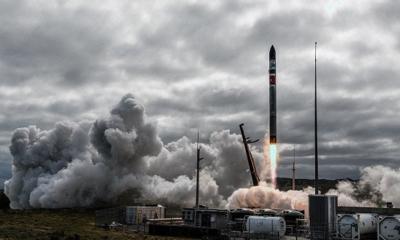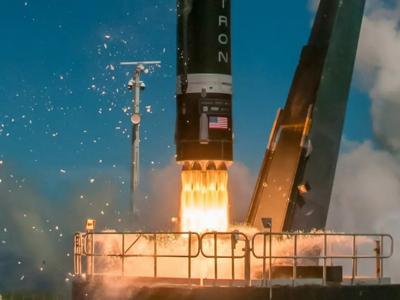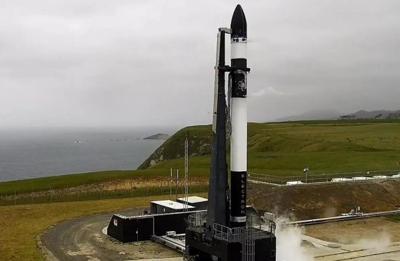Company’s Overall Mission Completion Record Remains Excellent
Rocket Lab USA, Inc. experienced an as-of-yet undisclosed issue during the 19 September launch of the company’s 41st mission.

Following lift-off from Rocket Lab’s New Zealand Launch Complex 1, the rocket completed a first-stage burn and stage separation, as planned, before an abnormality was observed at approximately two-minutes and thirty-seconds into flight. The nature of the abnormality resulted in the mission’s premature termination.
Rocket Lab expressed regret, apologizing to customer Capella Space for the mission’s loss.
In a post-incident statement, Rocket Lab set forth”
“We are working closely with the FAA and supporting agencies as the investigation into the root-cause commences. The Electron rocket has previously delivered 171 satellites to orbit across 37 successful orbital missions. We will identify the issue swiftly and implement corrective actions and return to the pad shortly.”
The statement continued: “Our next mission, currently scheduled before the end of the third quarter, will be postponed while we implement corrective actions. We anticipate providing revised third-quarter revenue guidance in the coming days.”
Rocket Lab is a publicly traded, American space-launch concern with a New Zealand subsidiary. The company’s Electron rocket—a proper noun, not an allusion to the contraption’s workings—is a market-leader in the light space-launch sector. Electron is designed to carry a 200–300-kilogram (440–660-pound) payload to a 500-kilometer (310-statute-mile) sun-synchronous orbit—specifications ideally suited to the launch of CubeSats and similarly small payloads.

In May 2022, after four years of developing the requisite systems and procedures, Rocket Lab attempted to recover an Electron booster by helicopter as the stage descended from Earth’s upper-atmosphere under parachute canopy. The maneuver was partially successful—which is to say the helicopter crew “caught” the booster as it drifted Earthward, but had to release it when the load shifted beyond pre-determined safety limits.
On 7 October 2022, the successful liftoff of Rocket Labs’s It Argos Up From Here mission from Launch Complex 1–the company’s private orbital launch site on New Zealand’s Mahia Peninsula—marked the 31st flight of an Electron rocket and the record-breaking eighth Rocket Lab launch of 2022–besting the company’s previous record of seven launches in 2020.
To date, 2023 has seen Rocket Lab successfully complete eight launches for customers: NASA, Capella Space, Rideshare, Leidos, BlackSky Global, and HawkEye 360.
Since its inception, Rocket Labs has demonstrated a marked propensity for ascribing tongue-in-cheek monikers to its launches, e.g. It’s a Test, Electron's first attempted launch; Return to Sender, the mission during which the aforementioned helicopter recovery was attempted; Running Out of Fingers, Electron’s tenth launch; and May 2023’s Rocket Like a Hurricane.

All told, over 41 attempted orbital launches, Rocket Lab has racked up 37 successes against only four failures—one of which was incurred during the Electron Rocket’s 25 May 2017 first test-flight. The numbers amount to a 90.24-percent success rate.
To complement its Electron platform, Rocket Labs is developing the larger Neutron rocket, a reusable, medium-lift, two-stage launch vehicle capable of delivering an 8,000-kilogram (17,600 pound) payload to low Earth orbit. The company is also in the process of creating a new satellite-bus called Photon, by which Rocket Labs customers may eventually convey satellites to orbits around Earth’s moon and celestial bodies within the Sol system.
 NTSB Prelim: Lee Aviation LLC JA30 SuperStol
NTSB Prelim: Lee Aviation LLC JA30 SuperStol Classic Aero-TV: Curtiss Jenny Build Wows AirVenture Crowds
Classic Aero-TV: Curtiss Jenny Build Wows AirVenture Crowds ANN's Daily Aero-Term (05.30.25): Very High Frequency (VHF)
ANN's Daily Aero-Term (05.30.25): Very High Frequency (VHF) Aero-News: Quote of the Day (05.30.25)
Aero-News: Quote of the Day (05.30.25) ANN's Daily Aero-Term (05.31.25): Microburst
ANN's Daily Aero-Term (05.31.25): Microburst





